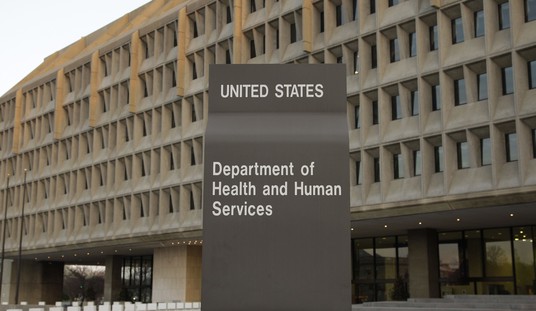The violence has not completely disappeared, but the vicious sectarianism that both fed and resulted from it has faded from life in Iraq, according to this McClatchy report. A growing sense of nationalism has returned to Iraq, and references to sectarianism get treated like bad manners now. People feel free to travel and visit old friends and relatives for the first time in years — and they hope it lasts (via Instapundit):
With violence subsiding throughout Baghdad, residents said that sectarianism is becoming less pervasive. They’re starting to think of themselves as Iraqis, not as hostages to hyphenated, sectarian identities.
Residents said they visit relatives in neighborhoods of opposite sects. Taxi drivers said they can travel around blast walls to neighborhoods outside their own sect. Sunnis can get medical care at Shiite-run hospitals.
Shiites can share a minibus with Sunnis without fearing that they’ll be signaled out at an illegal checkpoint. Teachers no longer feel pressure to give students of one sect higher grades than they give their classmates in another sect.
Most Iraqis, however, aren’t convinced that the drop in sectarian violence, now at its lowest levels since March 2004, according to the U.S. military, will last.
Instead, they think that the violence will continue to swing like a pendulum along with the security situation. Indeed, periodic spurts of violence remind residents that Sunni and Shiite extremist groups are still warring. On Sunday, a truck bomb killed at least 12 people in northern Baghdad, and a roadside bomb killed six more south of the capital. Last month, a string of bombings in Baghdad and Kirkuk killed more than 50 people in one day.
Until the last man in every militia either gets disarmed or killed, the violence will not entirely disappear. However, this story points out two major differences in Iraqi life over the last two years. First, the Army itself does not indulge in sectarianism, as it used to do when first established, as Nancy Youssef relates in an anecdote to lead the article. More importantly, the Army’s robust security prevents any other armed force from establishing checkpoints to do the same.
The violent sectarianism that roiled Iraq from 2005 to 2007, especially after the February 2006 bombing of the Golden Mosque in Samarra, mostly came from the militias. The Iraqi security forces were too weak to impose order, and the American forces didn’t have the right strategy in place to do it, either. Shi’ite Mahdi Army cells and Sunni insurgent gangs would set up checkpoints, stop cars and buses, and simply murder anyone from the rival sect. Iraqis learned to stay home and never venture outside their own neighborhoods.
The main driver behind the improved conditions is the rise of the Iraqi Army and the ecumenical coalition of Nouri al-Maliki. At the start of the surge, he rejected Moqtada al-Sadr and allied himself with Sadr’s rivals in the Shi’ite sect, and reached out to Kurds and Sunni tribal leaders, building coalitions that marginalized the militias. Once he had a strong enough security force, he employed them without hesitation to take control of Iraq — and driving the sectarian extremists out.
That process is far from finished, and Iraqis rightly fear a return to sectarianism if Maliki cannot continue with his efforts. The US needs to remain engaged, giving the central government enough strength and leadership in the field to ensure that the present gains are not lost in an ill-advised retreat. Otherwise, the success we can see in Iraq will collapse, and Iraq could become a failed state in the one place we can least afford to deal with one.







Join the conversation as a VIP Member